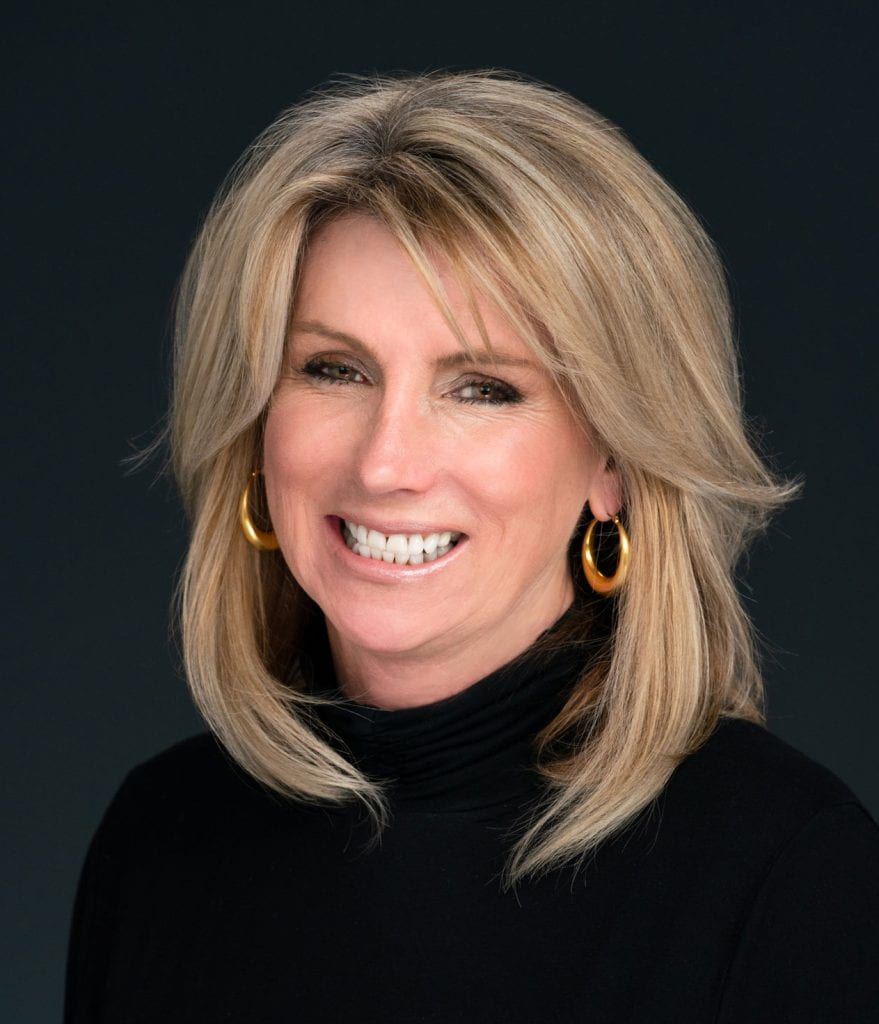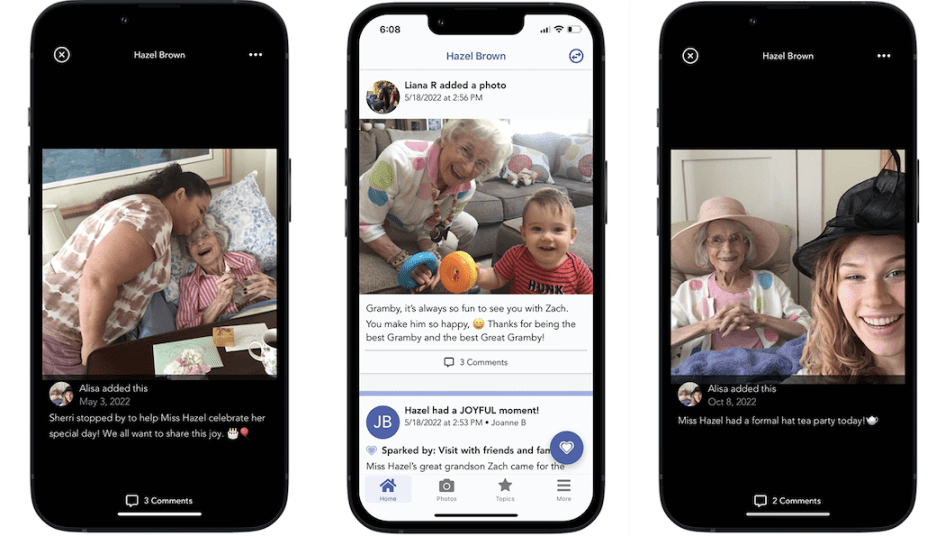Alumna returns to Management of Aging Services master‘s program this semester to teach Technology & Aging
When she enrolled in UMass Boston Gerontology’s Management of Aging Services master’s program, Debby Dodds was working in technology and helping her mother, who was in the early stages of Alzheimer’s disease. Dodds’ husband, an Apple employee, had brought home the first model of his company’s iPad tablets. Dodds’ mother was intrigued with the tablet, but she needed help to use it.

“I was interested in technology and iPads, and I could see how they could be helpful for people with memory loss—and for their caregivers,” says Dodds, MAS ’14. “The MAS program gives you free rein in many of the assignments to look into what interests you.” She downloaded software that allowed her to record her voice and upload photos to create a story and share memories on an iPad with her mother. As family members contributed more stories, caregivers could share them with her mother to rekindle fond memories even in the absence of the family.
“Mom felt more like herself when we’d play videos and songs that fit with her life experiences, because with memory loss you lose recall and need help accessing those memories,” Dodds says. “Memories of our early adulthood into our twenties fade the least quickly. So, watching a video of a hometown in the 1940s with the hairstyles, the music, the fashion, the dirt roads and cars of that time, can really take people back.” Dodds saw that Alzheimer’s was eroding her mother’s ability to solve problems, make decisions, and think logically, but not her ability to feel emotions, both bad and good. “So we worked on how could we help her feel her best feelings.”
Dodds’ MAS capstone project, demonstrating the effect of positive reminiscences with tablets, grew into a research poster, conference presentation, and eventually nearly $500K in funding from the National Institutes of Health, National Institute on Aging, and Small Business Innovation Research Collaboration to develop and pilot an app. Fast forward eight years and Dodds is a partner and leads caregiver engagement for Generation Connect. The company has developed and continues to refine a mobile application that prompts family and paid caregivers to explore research-backed behavioral interventions for dementia clients, from reminiscing with personalized music, family photos, and videos to cognitive stimulation and physical activities.
Generation Connect sells its app, diidii, to in-home care agencies that hire paid caregivers. The product’s goals include keeping older adults with memory loss in their own homes and retaining caregivers, a challenge that is exacerbated by dementia clients who can be easily agitated and sometimes aggressive. Dodds points to a male client in his 90s who suffered from multiple conditions including Parkinson’s and dementia. He could be verbally and physically aggressive, and in less than five years he had churned through 75 caregivers who quit or refused to serve the client. He had worked in heavy equipment manufacturing, so the care team collected images and YouTube videos of the heavy machinery he had managed from the 1960s and ’70s, along with photos and videos of his children and grandchildren. Introduced in the last year of life, the tablet and its apps drastically reduced caregiver complaints and turnover. Listening to personalized music playlists, “he felt like himself,” Dodds says. “He didn’t want to let go of the iPad the first time they showed it to him.”
Returning to MAS program as instructor
For the spring 2023 semester, Dodds is bringing her experience and passion for the promise of technology to teach the Technology and Aging class for the UMass Boston Management of Aging Services program. She’ll lead students first through understanding the intersection of high tech and aging, then look at technology that has been developed for the aging population by involving older adults in the development. Other topics include companion robotics, virtual reality, mobility and transportation, dementia, caregiver challenges, and more. A number of industry and research experts will join the class as guest speakers. The class will finish with a partner project in which students present an age-tech product, either existing or a concept to be developed. If students are interested in developing a product, Dodds will offer guidance on the next steps.
Helping care professionals leverage everyday technology to improve care for people living with dementia is a passion as much as a profession for Dodds. In the last year of her life, Dodds’ mother lived with her and her family. The experience was far more positive than she’d imagined. “During that last year we were able to curate beautiful memories for our mother,” she says. The app helped immensely, as did her gerontology studies. “Investing in the MAS degree helped shape my life personally and professionally,” she says, “and I am grateful.”


Leave a Reply